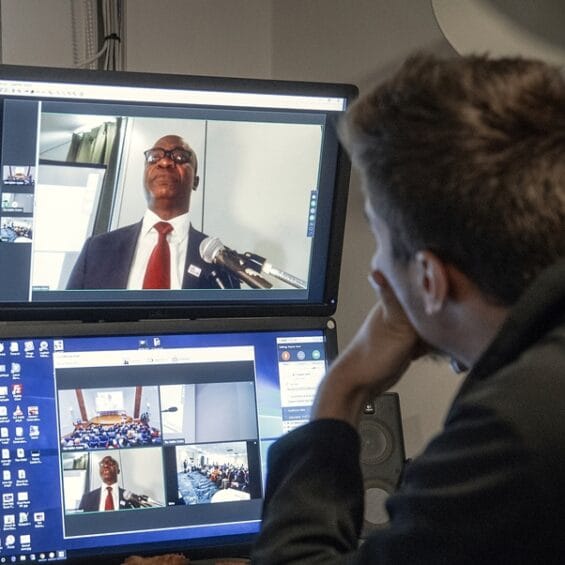Virtual conferences are fast-becoming the norm, with some of the world’s largest companies and event organisers putting the show not so much on the road, as online.
There are many considerable benefits to hosting a virtual conference, meaning they are a great tool for companies and organisations or all sizes and sectors.
From increasing the reach and scale of a business event, to enhancing community-building and supporting the environmental targets of your organisation, virtual conferences are set to boom during 2020 – and well beyond.
Here is a cheat-sheet of the essential virtual conference tips:
Identify conference venue
Start by considering the location for your business conference. While the event will be live-streamed online, it needs to be hosted at a professional conference venue representative of the brand you are conveying.
Experienced conference venues act as a hub for your event, large enough to host your events team and event speakers comfortably.
They are also set up with all the technology needed to host a virtual conference smoothly, with technology personnel at your disposal for glitch-free reassurance.
Identify technology needs
Running a virtual conference requires forethought beyond the usual technology expected for a webinar or similar virtual meetings. Stringing together hosted webinars is unlikely to deliver the impact you may want, and will certainly fall short of a live conference experience.
In curating the content to match the audience experience you desire, use the expertise of your selected conference venue to identify the best technological way to deliver that vision.
Select speakers
To an extent, the technology capabilities of your event may help determine which speakers to invite; Do they need to live close to the conference venue? Need to travel to the venue? Can they contribute remotely while maintaining content quality?
Your conference venue partner may also be able to suggest high-calibre speakers, both local to and working remotely with the venue. The Møller Institute, for example, can draw from its array of its Executive Education trusted speakers and associates.
Open access or gated?
Virtual conferencing has the ability to reach beyond geographic boundaries and time zones and increasing brand exposure, but this poses questions around access.
Do you want your business conference to be invite-only, limiting some of these benefits but perhaps tailoring content to a very specific audience?
Should you provide gated access to your virtual conference? This can provide useful data-capture and grow your online conference’s reach, but will still lock out some and limit social media sharing.
Or is your virtual conference about getting your ideas ‘out there’, expanding the organisation’s reach beyond those who already know you, and showcasing the calibre of speakers your event is able to attract?
This decision comes back to the objectives and KPIs of your virtual conference: ultimately, what type of online access supports the reason for hosting your event?
These virtual conference tips highlight some nuanced differences from organising live conferences. Yet, it’s clear that hosting virtual conferences bring additional benefits and need not be intimidating to any event organiser.

